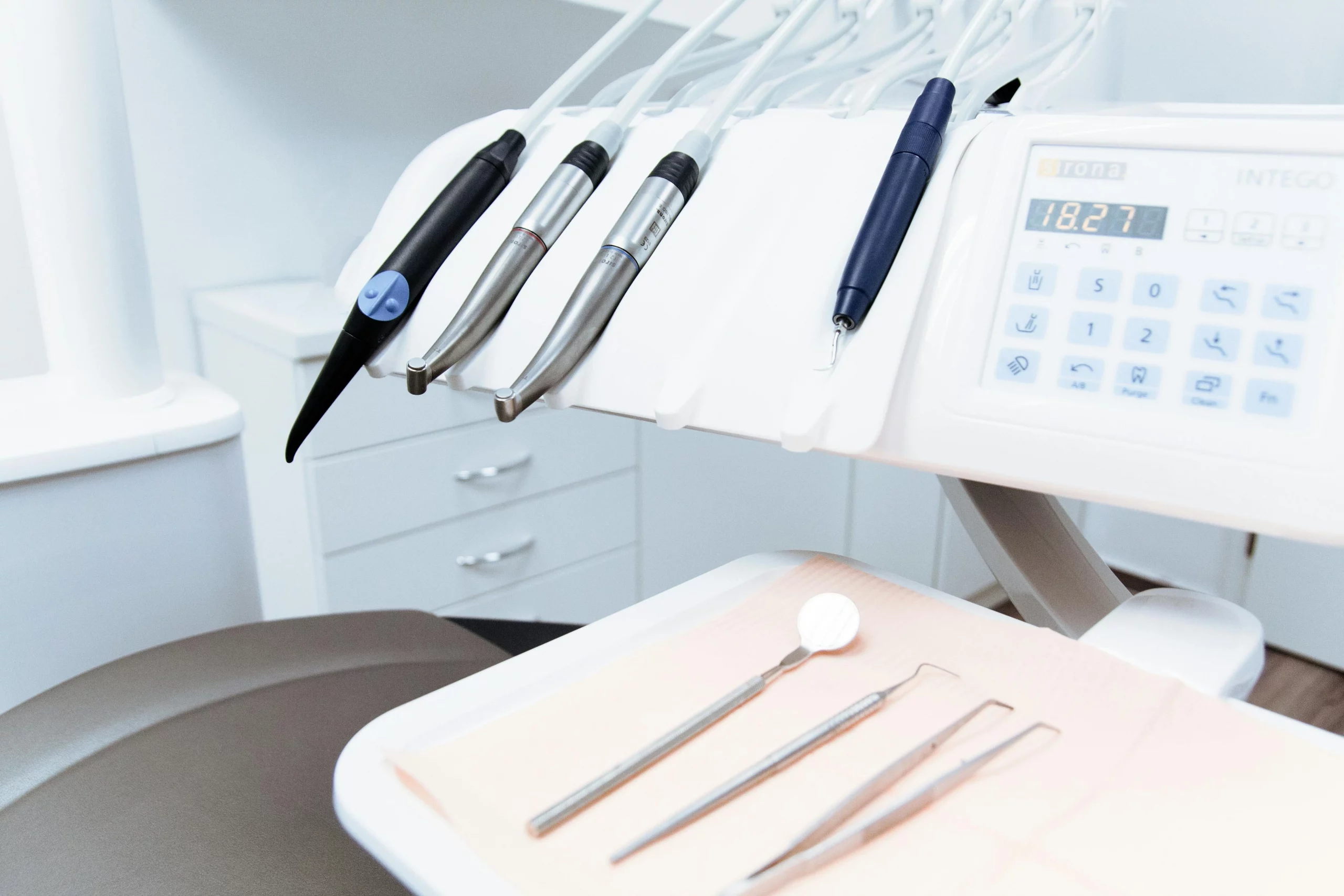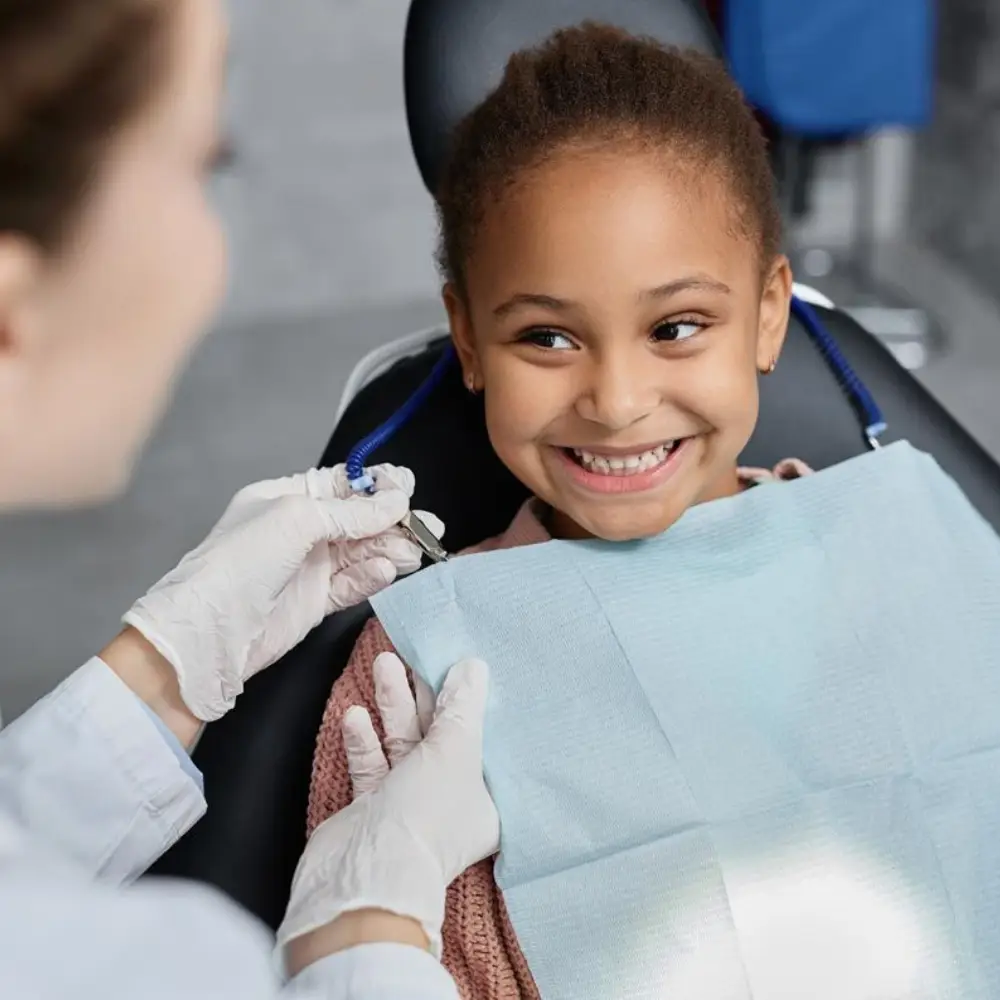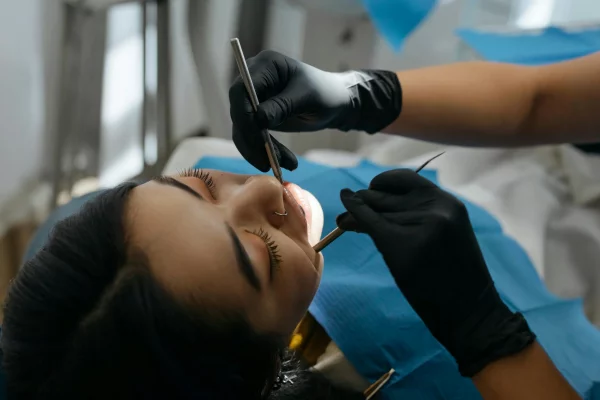Teeth cleanings are one of the most essential steps you can take to maintain long-term oral health. While daily brushing and flossing lay the foundation, professional cleanings reach areas your toothbrush simply can’t. These appointments aren’t just about removing surface stains—they play a vital role in preventing gum disease, tooth decay, and even more serious health problems linked to inflammation and bacteria in the mouth. In this article, you’ll learn what to expect during a cleaning, why it matters beyond aesthetics, and how often you should schedule them for optimal results.
What Happens During a Professional Teeth Cleanings?
Contrary to popular belief, teeth cleanings extend beyond mere routine maintenance. While the procedure may appear simple on the surface, it actually encompasses a comprehensive evaluation of oral health. Each appointment serves not only to remove plaque and tartar but also to provide an opportunity for early detection and prevention of potential dental issues, thereby supporting the long-term preservation of one’s oral well-being.
Step-by-Step Overview of a Routine Cleaning Appointment
- Initial Exam:
Before the cleaning begins, your dental hygienist will examine your gums and teeth using a small mirror to identify any signs of inflammation, recession, or damage. If anything looks unusual, the dentist may step in for a closer look before the cleaning continues. - Plaque and Tartar Removal:
Using a scaler, the hygienist removes plaque and hardened tartar from your teeth, especially around the gumline and between teeth. This part may involve some scraping, but it’s critical for preventing gum disease. - Gritty Toothpaste Polishing:
After scaling, your teeth are polished with a high-powered brush and gritty paste. This helps remove any remaining plaque and minor stains, leaving your teeth smooth and clean. - Flossing and Rinse:
Your hygienist will then floss between your teeth and have you rinse to clear out debris. - Fluoride Treatment (Optional):
Some appointments end with a fluoride treatment to help strengthen enamel and prevent decay.
Tools and Techniques Used by Dental Hygienists
Dental hygienists employ a variety of specialized instruments including scalers, ultrasonic devices, and polishing tools to meticulously clean each tooth. Ultrasonic equipment utilizes vibrations and water to effectively dislodge tartar, while manual tools allow for thorough cleaning in more confined areas. Depending on individual patient needs and preferences, hygienists may also use polishing devices, apply fluoride varnishes, or utilize air polishers to further enhance oral health.
Benefits of Professional Teeth Cleanings Beyond Cosmetic Appeal

Many people tend to dismiss teeth cleanings as merely cosmetic—a superficial polish intended to enhance the brightness of one’s smile. In reality, these procedures serve a significantly greater purpose in safeguarding systemic health. Professional teeth cleanings effectively remove plaque and tartar, substances that routine brushing often fails to eliminate. Their removal is crucial in decreasing the likelihood of developing dental caries, periodontal disease, and even tooth loss.
Furthermore, there is a growing body of research indicating a strong connection between poor oral hygiene and systemic conditions such as cardiovascular disease and diabetes. In summary, regular dental cleanings are far from being solely about aesthetics; they represent an essential component of preventive healthcare, contributing to both oral and overall well-being.
Preventing Gum Disease, Cavities, and Bad Breath
One of the biggest benefits of teeth cleanings is early intervention. Plaque that isn’t removed hardens into tartar, which leads to inflammation and gum disease. Regular teeth cleanings help reduce this risk dramatically. They also help prevent tooth decay and the bacterial buildup that causes chronic bad breath (halitosis). Maintaining clean, healthy teeth also reduces your need for fillings, root canals, and extractions down the road.
Early Detection of Oral Health Issues
During your cleaning, your dental team also checks for early signs of more serious problems such as oral cancer, receding gums, and tooth mobility. These issues can be painless in the early stages, so they often go unnoticed without a professional exam. Detecting them early gives you the best chance of successful treatment and long-term wellness.
How Often Should You Have Your Teeth Professionally Cleaned?

While there isn’t a universally applicable schedule, dental professionals generally recommend biannual teeth cleanings for most individuals. This routine facilitates early detection of potential concerns, supports gum health, and contributes positively to overall well-being. In certain cases such as patients with heightened risk factors or existing oral health conditions, a dentist may advise more frequent visits. Ultimately, the appropriate frequency depends on each person’s unique dental profile.
Recommended Frequency for Adults and Children
The American Dental Association recommends professional cleanings at least every six months for most adults and children. This twice-yearly routine allows your dentist to monitor your oral health and remove tartar before it becomes problematic. Children benefit from cleanings starting around age 1 or within six months of their first tooth eruption. These visits build good habits early and help detect developmental concerns like alignment issues or early decay.
Factors That Might Affect Your Cleaning Schedule
For some individuals, more frequent dental cleanings, approximately every three to four months, are necessary. This increased frequency is typically recommended for patients with a history of periodontal disease, those who use tobacco, individuals with diabetes or other systemic health concerns, people wearing orthodontic appliances, or those experiencing dry mouth due to medications. Dental professionals will evaluate your specific circumstances and advise a cleaning schedule tailored to maintain your optimal oral health.
Why Choose GP Dental for Your Regular Teeth Cleanings?

At GP Dental, we recognize that establishing trust, fostering comfort, and ensuring consistency are pivotal components of high-quality dental care. Our approach to dental cleanings extends far beyond mere routine maintenance; we view each appointment as an opportunity to engage with patients, actively listen to their concerns, and contribute to their ongoing oral health. From the initial moment a patient arrives, our team is committed to creating an atmosphere where individuals feel at ease, well-informed, and genuinely valued. Ultimately, we believe that the foundation of a healthy smile is a relationship grounded in authentic, attentive care.
Gentle, Comprehensive Care for Every Patient
Our dental hygienists are trained not only in the latest techniques but also in patient-centered care. Whether it’s your first cleaning or your fiftieth, you’ll receive attention that’s thoughtful, thorough, and responsive to your needs. We use a calm and compassionate approach, especially for patients who feel nervous or haven’t been to the dentist in a while.
Advanced Tools and Experienced Staff for Optimal Results
We combine experience with innovation. Our team uses advanced tools like ultrasonic scalers, digital imaging, and intraoral cameras to ensure cleanings are effective and efficient. Each visit includes a full oral health check, and your hygienist will take time to answer your questions, offer guidance, and keep you informed every step of the way.
Frequently Asked Questions (FAQs)
1. Do teeth cleanings hurt?
Most people experience little to no pain during teeth cleanings, though certain spots may feel sensitive especially if there’s plaque buildup or gum inflammation. If you’re uncomfortable, let your hygienist know; they can use gentler techniques or apply a numbing gel to ease sensitivity. As your oral health improves with regular visits, cleanings typically become quicker and more comfortable. Maintaining good hygiene at home also helps reduce discomfort during future appointments.
2. Are teeth cleanings really necessary if I brush and floss daily?
Yes, even if you brush and floss diligently, plaque can still accumulate in areas your toothbrush can’t reach. Over time, this plaque hardens into tartar, which can only be removed with professional dental instruments. Regular teeth cleanings are essential not just for removing tartar, but also for spotting early signs of tooth decay, gum disease, or other issues before they become serious. Preventive care like this helps preserve your oral health and can save you time, money, and discomfort down the road.
3. How long does a typical cleaning appointment take?
A standard teeth cleaning typically lasts between 30 minutes to an hour, depending on how much plaque or tartar has built up and the overall condition of your mouth. If it’s been a while since your last visit or if signs of gum disease are present, the cleaning may take longer or be split into multiple appointments. Deep cleanings, which go below the gumline, often require more time and may involve numbing for comfort. Your dental team will walk you through the process so you know exactly what to expect.
4. Can teeth cleanings whiten my teeth?
While teeth cleanings don’t whiten your teeth the same way bleaching treatments do, they effectively remove surface stains caused by everyday habits like drinking coffee, tea, or smoking. As a result, many patients notice their smile looks noticeably brighter and fresher right after a cleaning. This natural enhancement often boosts confidence without any added treatments. If you’re looking for more dramatic whitening, your dentist can recommend safe, customized cosmetic solutions.
5. What’s the difference between a regular cleaning and a deep cleaning?
A regular cleaning is typically done to maintain healthy teeth and gums, removing plaque and tartar from the surfaces and just above the gumline. It’s a preventive measure that helps keep your mouth fresh and healthy. In contrast, a deep cleaning, also called scaling and root planing, goes beneath the gumline to remove hardened buildup and bacteria from periodontal pockets. This type of cleaning is often recommended if you show signs of gum disease, such as bleeding gums, inflammation, or bone loss. Your dentist will assess your oral health during the exam and recommend the most appropriate type of cleaning for your needs.
Your smile deserves more than the occasional brush and floss. Schedule your next professional teeth cleaning at GP Dental today and give your oral health the consistent care it needs.
Whether you’re due for your routine visit or it’s been a few years, our friendly team is ready to help you feel comfortable, informed, and well cared for. Don’t wait until problems arise—protect your smile now and in the future with expert teeth cleanings tailored to you. Call us or book online to get started.


